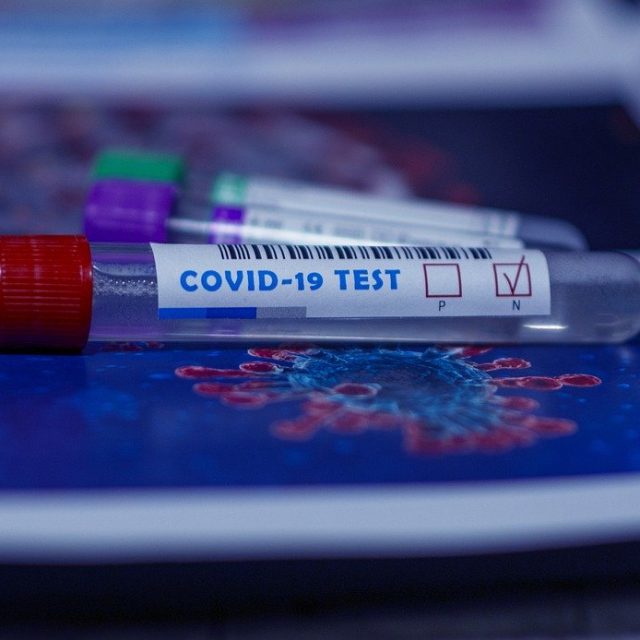LICENCES IN A MINUTE

Renew, obtain, or exchange your driving licence (or any other) with our new available service.
FOOTBALLERS CHECKUP

Pass your football medical checkup quickly and without any tedious paperwork in Clínica La Siesta.

GENERAL PRACTICE
Our General Practitioners provide high quality primary care. They can manage all aspects of your health concerns and needs.

ODONTOLOGY
A feeling of insecurity about your smile can affect the way in which you behave and how you are perceived by others, personally and professionally.

TRAUMATOLOGY
Our specialists are fully prepared for developing and implementing state of the art techniques to diagnose and treat bone and joint disorders.

PSYCHOLOGY
Our therapies are based on the modern techniques as well as those that have shown to work best to solve the problems in the psychological, emotional and behavioural fields.

PHYSIOTHERAPY
Our aim is to provide high quality, affordable physiotherapy solutions and deliver effective treatment results in an honest, ethical and professional manner.
TELEPHONE 966 78 41 95
RECENT POSTS

CLIMACTERIC AND MENOPAUSE
If we searched the words “female climacteric”, “physical activity” and “physiotherapy” in a search engine today, we would obtain more than 30,000 entries. There is a lot written about it, and not without good reason, since these are three very interrelated and important concepts. The female climacteric is the transition period in a woman’s body between the reproductive and non-reproductive stages of her life that begins approximately 5 years before menopause (last menstruation) and lasts about 10 years. About the estrogen During the female climacteric, estrogen (the female sex hormone produced in the ovary) decreases drastically, while the ovary stops producing eggs. The decrease in estrogen produces a deregulation of the menstrual cycle, leading to anovulation (lack of ovulation and infertility) and amenorrhea (lack of periods). Estrogens intervene in multiple functions of the female body apart from fertility: they intervene in the cardiovascular system, in the bone and muscular system, in the trophism of the genital apparatus, which results in a decrease in muscle tone that leads to prolapses, incontinence, lubrication, sensitivity, and pain issues. Also, estrogens play an important role in the control of the metabolic system, in the distribution of body fat, and interfere with mood (anxiety and depression disorders) and behavior in women. The climacteric is not an easy stage in a woman’s life but it eventually comes to an end, and what we must do is try to live it with the best possible attitude, disregarding the many preconceived ideas and harmful stereotypes about it. There are several risks of the female climacteric: decreasing estrogen levels in the body increases the risk of heart disease, osteoporosis and other health problems. In this sense, physical exercise can help prevent or reduce these risks by strengthening bones and muscles, improving cardiovascular health, controlling chronic diseases such as cancer and diabetes, and helping to maintain weight, physical fitness, and health leading to a healthier mood. About the exercise Engaging in or increasing physical exercise during female menopause can be beneficial for overall health, and can also help relieve some common symptoms of menopause, such as hot flashes, night sweats, mood swings, and depression, and improve sleep quality and the quality of life in general. It is important to speak with a health professional before starting an exercise program during menopause, especially if you have any pre-existing medical conditions. The healthcare professional can help design a safe and effective exercise plan that is tailored to individual needs and abilities. Strength exercises, practiced regularly, are good hormonal and metabolic regulators, therefore, it will be the best medicine to contrast and regulate many of the side effects of this stage and to have a better state of health in general. Here are a few other recommendations in this regard. – Practice sports 2-3 days a week, including strength exercises. – Have a balanced diet (fruits, vegetables, meat, fish and eggs), avoiding processed foods and sunbathing. – Eliminate toxic habits such as smoking, coffee and sugary drinks consumption. – Exercise your pelvic floor. However, it is very important to consult with a specialised physiotherapist first, to find out the state of your pelvic floor and to only follow an exercise routine adapted to your specific condition. It is very easy to hurt yourself by carrying out the exercises incorrectly or by using devices marketed for pelvic floor exercise. – Take care of yourself emotionally, living the process with a positive outlook. This way you will be able to deal with the dreaded hot flashes, night sweats and sleep disorders, osteoporosis, incontinence, overweight and localized obesity due to metabolic causes, psychological changes such as irritability, stress, and secondary depression. The medical professional can be of great help at this stage of life through consultation, control, monitoring, supplementation and intervention. For his part, the physiotherapist can help both in the specific pathologies that are subsidiary to intervention and in the planning and supervision of the personalized maintenance plan.

MENTAL HEALTH
Physical and mental health are closely related, as a healthy mind contributes significantly to a healthy body. Maintaining good mental health involves taking care of our emotions, thoughts and behaviors. As we get older, it is also vitally important to exercise both our physical and mental abilities daily but in a way that suits our personal circumstances. Any excess can be totally counterproductive. Practices such as meditation, regular exercise, a balanced diet and adequate rest are some ways to promote mental health. When our mind is balanced, we can cope better with stress, make more informed decisions, and maintain healthy relationships. Additionally, a healthy mind can help prevent physical illnesses, such as chronic stress. Anxiety can have a negative impact on our body, which is why it is essential to dedicate time and effort to taking care of our mental health, since this not only benefits our mind but also our body, remember that health is a state of comprehensive well-being. . That encompasses both the mind and the body! I hope this article helps you understand the importance of maintaining a healthy mind to preserve physical well-being. At Clinica la Siesta we want to always be by your side and advise you to keep our body and mind in the best conditions.

PHOTOTYPE
What is it? Sunlight affects everyone in a different way. The skin’s ability to absorb ultraviolet light is what determines a person’s phototype. Knowing it could be very useful, not only to know how to sunbathe, but also to prevent many diseases. Thomas Bernard Fitzpatrick, an American dermatologist who developed the skin type scale in 1975, highlights 6 phototypes (from I to VI) that vary according to their characteristics, such as their colour and sensitivity to ultraviolet light. Phototype I – Skin: pale white skin, often with many freckles;– Hair: blonde or red;– Eyes: very light, green or blue;– Sensitivity to sunlight: very high. People with phototype I are advised to avoid sunbathing and to always use SPF50 sunscreen. Phototype II – Skin: fair, sometimes with freckles;– Hair: blonde or light brown;– Eyes: light, gray, blue or green;– Sensitivity to sunlight: high. People with phototype II are recommended to sunbathe as little as possible and to always apply SPF50 sunscreen. Phototype III – Skin: darker white skin, rarely with freckles;– Hair: blonde or brown;– Eyes: gray or brown;– Sensitivity to sunlight: average. People with phototype III have the ability to tan, but the skin can burn easily. They are recommended to use SPF30 sunscreen. Phototype IV – Skin: light brown skin;– Hair: dark;– Eyes: brown;– Sensitivity to sunlight: below average. People with phototype IV rarely get sunburned. They are recommended to use SPF20 or SPF30 sunscreen.. Phototype V – Skin: dark;– Hair: black;– Eyes: dark brown;– Sensitivity to sunlight: low. People with phototype V can hardly get sunburned. They are recommended to use SPF20 sunscreen. Phototype VI – Skin: very dark;– Hair: black;– Eyes: dark brown or black;– Sensitivity to sunlight: very low. People with phototype VI never burn in the sun. They are recommended to use SPF10 sunscreen. Phototypes and ultraviolet light Knowing your skin type, you can understand what is the safest way to sunbathe. For phototypes I and II, sunlight is especially dangerous. People with this type of skin take greater risks when sunbathing. People with phototype I with freckles should not sunbathe at all and should use SPF50 sunscreen on a regular basis. On the other hand, people with darker skin tone do not burn as easily, but this can give them a false sense of security. Everyone should use sun protection in certain situations and take certain precautions when out in the sun. There is a large number of phototypes, since not everyone can see themselves reflected 100% in the characteristics described above. Most people will have a mix of features from various skin types. In order to determine your exact skin type, it would be advisable to go to your dermatologist so that the doctor can examine you and run specific tests and advise you according to the specific characteristics of your skin type. However, it is enough to know your approximate skin type to be able to adopt the appropriate security measures. To do so, examine your skin tone in daylight on untanned areas of the body. Look at the color of the veins on your arms: if they appear somewhat greenish, then you have the warmer, darker skin tone; if they appear more blue, it is likely that your phototype is I or II.






